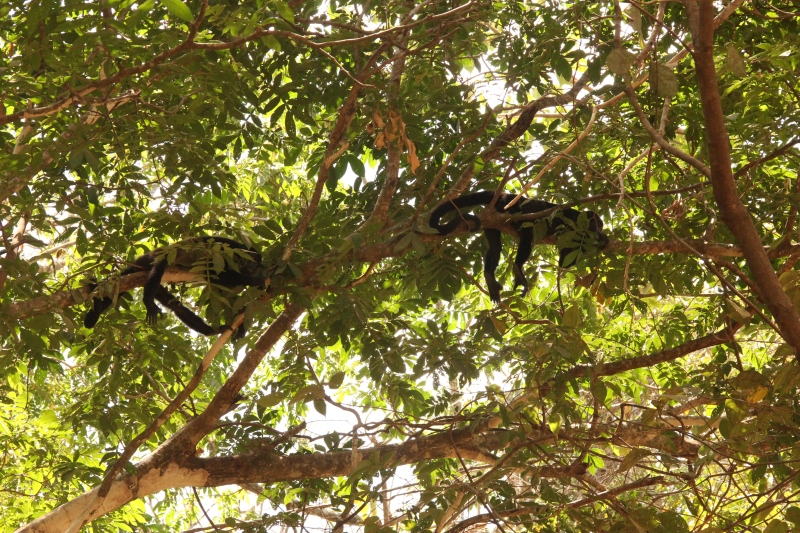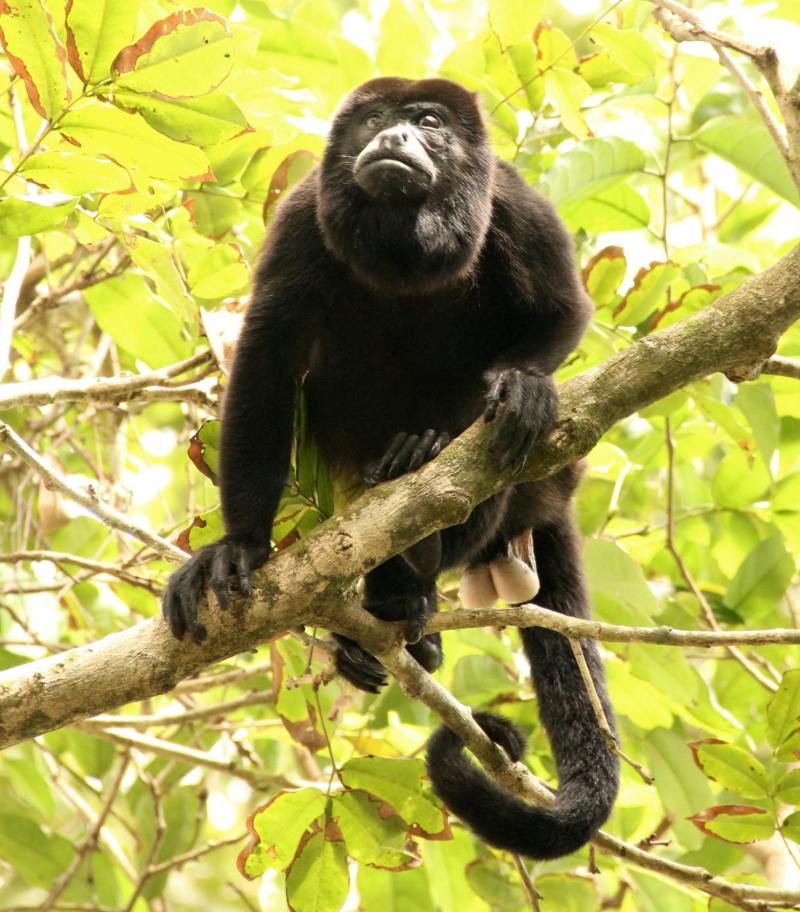
If you’re a wildlife sound recordist visiting Central or South America, Howler Monkeys are certain to be on your hit list. On the face of it, not that difficult – in Costa Rica they were almost ubiquitous, waking us up most mornings from just before 5am. Sadly this coincides with rush hour in CR; most folk are at work by 6am so just before dawn the countryside is full of the joyous melody of motorbikes, Land Cruisers and huge trucks. More of this later…
Now wolves howl and dogs howl, but I’m afraid that in my opinion Howler Monkeys – at least the Mantled variety of Costa Rica – don’t. They do grunt, like this large male a couple of metres away from me as he tried unsuccessfully to negotiate a tricky gap between trees:
And when neighbouring troops call at dawn, it really is one of the best sounds of nature:
But surely this isn’t ‘howling’, it’s ‘roaring’, though perhaps ‘Roarer Monkeys’ doesn’t trip off the tongue so well.
Whatever we decide to call them, after several failed attempts at recording them I think that I proved one of my theories. If you’ve ever tried to record wild geese in the UK, you will notice that they appear to take off, and so vocalise best, just as a plane flies over (WSRS members attending our winter meetings at Caerlaverock will attest to this annoying habit). I discovered a similar thing in Costa Rica – Howler Monkeys responded to passing vehicles. Not only that, the bigger the engine, the more vociferous and deeper the response: a gentle grunt to a moped, a fairly good roar to a 4×4, then a great chorus to a passing truck. Fear not, I’m not going to bore you with a series of recordings of Howlers (Roarers) vs Internal Combustion Engines, but food for thought…

